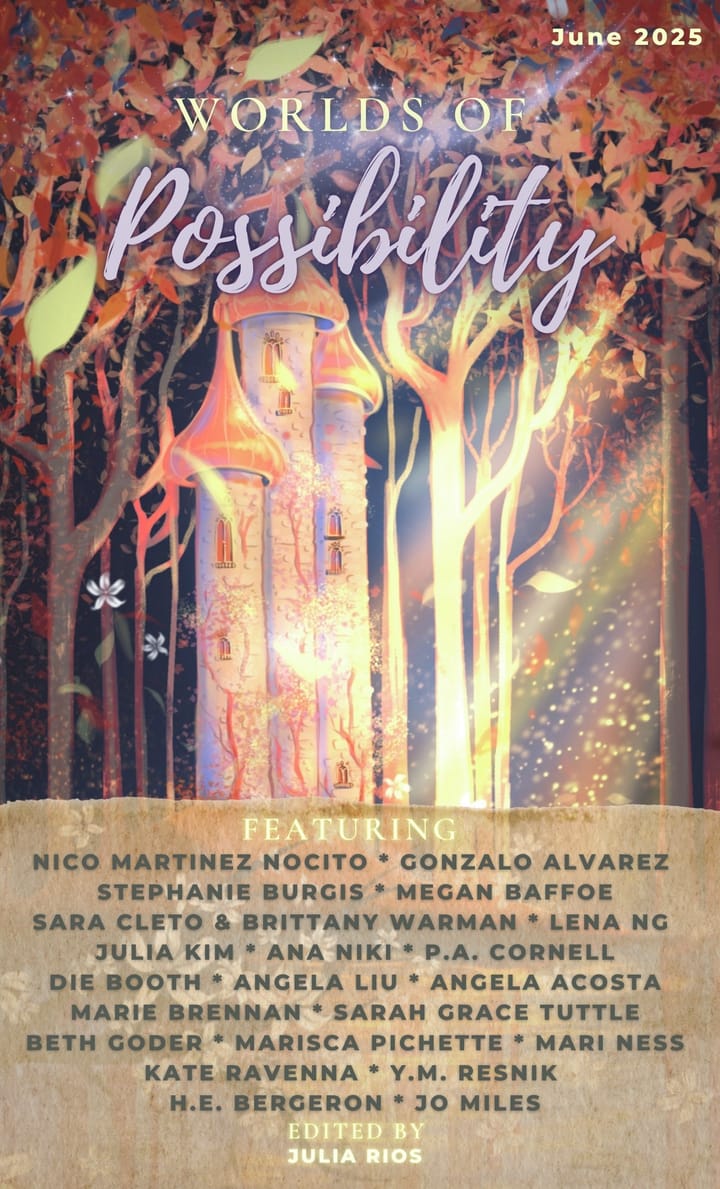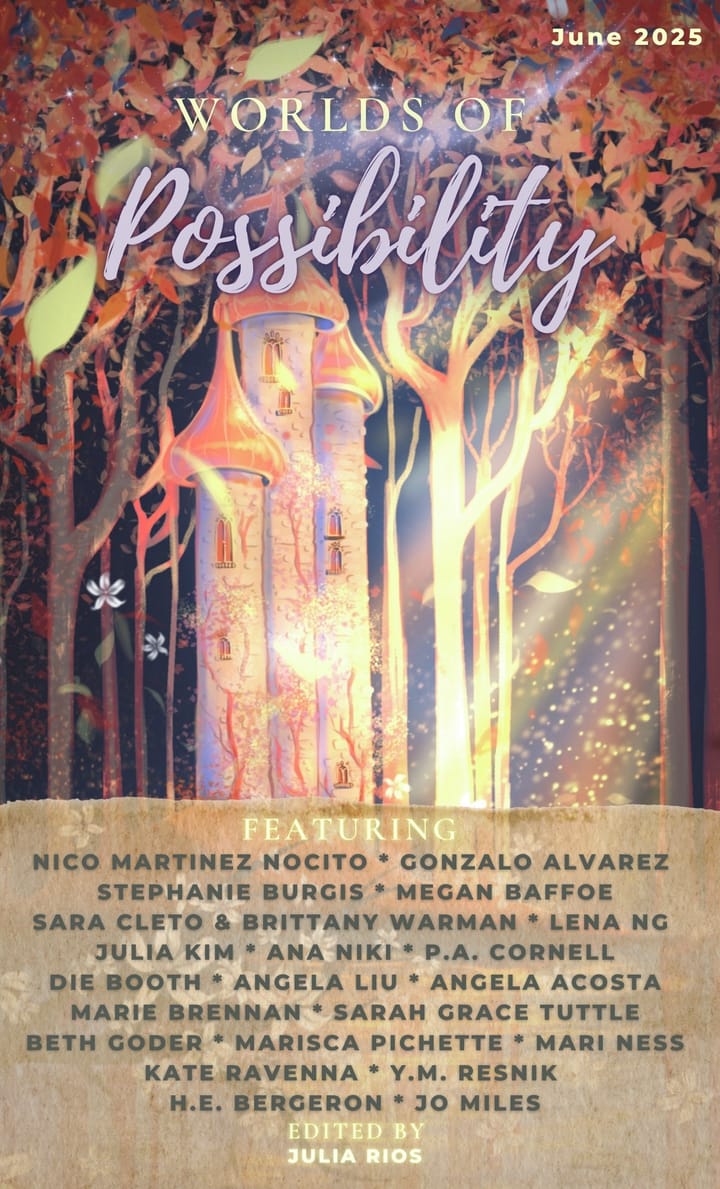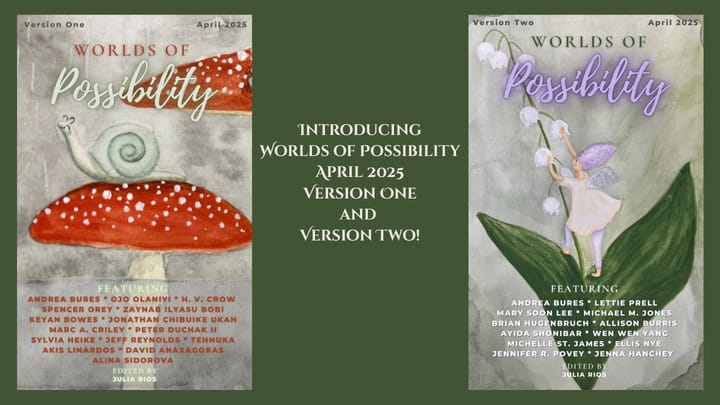Million Year Elegies: Dimetrodon -- a poem by Ada Hoffmann
A poem from Million Year Elegies by Ada Hoffmann

Ada Hoffmann is a writer of novels, short stories, and poetry. Her poetry collection, Million-Year Elegies, comes out on the 9th of March, and this previously unpublished poem is in it! I asked her to let me publish the poem here and to do a little interview about the collection, which appears directly after the poem itself. As with all the other paid subscriber sponsored works, this post was released just for paid subscribers for a bit before it changed to free for everyone. You can find out more about Ada and her work by visiting her website, where you can also find out more about Million-Year Elegies.

Million-Year Elegies: Dimetrodon
by Ada Hoffmann
You do not know them,
these newfangled body-shapes
tumbling out of the cereal box
with your own toy likeness.
They are not of your time.
When you sunned yourself in the desert heat
they were not even a thought:
as many million years from you
as apes from tyrannosaurs.
Their line diverged from yours
before you were born. If you had children
left alive today, they would be odd cousins
to the cats and the platypi:
knobbly, not-quite-yet-furred,
great scaleless gnawers of bones.
Long before the terrible lizards rose,
you had died. The world had burned again:
ten million volcanoes a blistering hole
in its side. You had choked on the ash.
You were bones. Dust.
You never sparred with a stegosaur,
ran from a raptor. Yet you have grown used
to careless baby apes parading them around
the kitchen table with you, as if these were your friends,
as if these were your enemies.
You have learned to play your role,
to growl and chase as reptiles do
on your lumbering scaleless legs.
Perhaps they are your new kin, after all-
at least the reptiles know what it is
to be remembered in toy form, carelessly,
kindly, a little bit wrong.
______________
Interview with Ada Hoffmann
JR: How long have you been working on the poems for this collection?
AH: I wrote the first one, "Tyrannosaurus," in 2014. Most of the poems were written over the course of a few years after that, between 2015-2017. Everything else after that was just making plans and tweaking the details.
JR: Did you always know it would be on themed collection, or was there a point after you had written a few poems with a similar theme when you realized you could make it into something bigger?
AH: From the moment I wrote "Tyrannosaurus," I knew it was going to be part of a bigger project, but I didn't have a good sense yet of where that project was going. In 2015 I wrote a burst of a few more poems, but it took a long time after that to fully flesh the project out, to find its thematic throughlines and carry them across the very long evolutionary timespan that the collection covers.
JR: Tell us about the concept behind this collection. What does it mean to you, and why did you choose it?
AH: I'm what you'd call a "dinosaur person" - dinosaurs were one of my biggest special interests growing up and they're an interest I return to periodically as an adult. I just love them - and other ancient life, too. (For a while, I named one of my online personas after a creature from the Burgess Shale.) So, really, I chose this theme because it's fun!
But I feel like ancient creatures have a lot to say to us thematically. When we look at the fossils of creatures that were alive millions of years ago, we project so many of our own feelings about monstrousness onto them, feelings about life and death and hunger and pain and survival. And 2015-2017 was a time in my life where I had a lot to say about those things. In a way I think the dinosaur theme makes it palatable for me - I think this is something a lot of authors do, especially non-neurotypical authors. We take a topic that fascinates us and use it as a lens to look through or an alphabet to write with, and we're able to say more with it than we could without. We can bring up these difficult topics and it's easier to handle them because now they're cool and shaped like a dinosaur.
I end up interrogating that act of projection as well, as you can see in the Dimetrodon poem. Because ultimately when we project something human onto something that's been gone for so long, we end up saying more about ourselves than about the thing we're looking at. We make errors or take creative liberties because it serves our purpose, regardless of what was really happening back then. So there's a lot of that kind of thing in the collection too - stuff about the different ways we've interpreted fossils over the years, the disputes between fossil hunters, the way we trace human lineage through fossils, and things like that.
JR: Do you have a favorite dinosaur? If yes, which one, and why?
AH: I've always had a weakness for the meat-eaters. I could never decide between Tyrannosaurus (sure, I'm basic, that's the one everyone picks, but it's cool enough to deserve it, okay) and the dromaeosaurids - much smaller predators like Deinonychus and Velociraptor. Jurassic Park's Velociraptors are far enough from the actual Velociraptor to be basically a movie creature of their own - and I have a poem about that, too! - but the whole dromaeosaurid lineage, in any interpretation, is just deadly and feathery and lovely.
______________
That's all for now, but a few days after this post goes live for the public, we'll also have a process Q&A post with Ada for paid subscribers only!


